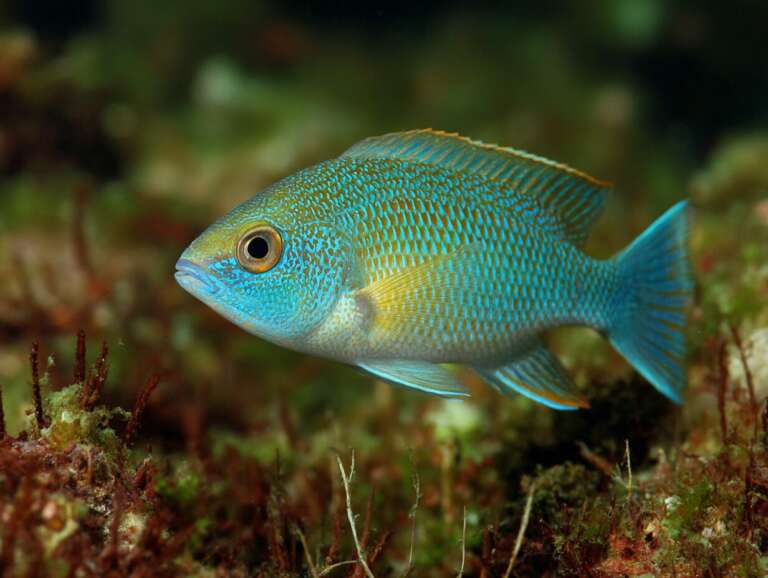How is our changing climate affecting the majestic marine mammals of our oceans? The truth is, it’s a crisis that’s unfolding right before our eyes, and the stakes couldn’t be higher. Climate change is not just a distant threat; it’s a reality that’s reshaping our planet and wreaking havoc on ocean ecosystems. As temperatures rise and habitats shift, marine mammals—those incredible creatures that grace our seas—are facing unprecedented challenges. In this article, we’ll dive deep into the struggles these animals endure due to climate-induced habitat changes, shedding light on their survival and the broader implications for marine biodiversity.
TL;DR: Climate change is drastically altering marine mammal habitats, threatening species survival through changes in food availability and migration patterns. Understanding these challenges is crucial for conservation efforts and policy-making.
The Changing Ocean Environment: A New Reality for Marine Mammals
Let’s get straight to the point: the ocean is changing, and fast. Over the past century, ocean temperatures have risen by an alarming 1.5 degrees Fahrenheit (0.8 degrees Celsius), and the acidity of our seas has increased by 30%. This isn’t just a number; it’s a death sentence for many marine species. Warmer waters disrupt the delicate balance of marine ecosystems, leading to shifts in species distribution and abundance. Marine mammals, from whales to seals, play a vital role in these ecosystems, acting as indicators of ocean health.
But here’s the brutal truth: as the ocean warms and becomes more acidic, the habitats that marine mammals rely on are vanishing. For instance, the decline of krill populations—tiny crustaceans that are a primary food source for many marine mammals—can be directly linked to rising ocean temperatures. The correlation is clear: as the ocean changes, so too do the populations of the creatures that inhabit it. This isn’t just about numbers; it’s about the survival of entire species.
Habitat Impact: Where Have the Marine Mammals Gone?
You might be wondering, where have all the marine mammals gone? The answer is simple yet alarming: they’re being forced to migrate to new habitats in search of food and suitable living conditions. Take the polar bear, for example. As sea ice melts due to rising temperatures, these iconic creatures are losing their hunting grounds. They’re not just moving; they’re struggling to adapt to a rapidly changing environment.
Consider the narwhal, often dubbed the “unicorn of the sea.” These fascinating creatures rely on stable ice habitats for breeding and feeding. As the Arctic warms, their habitats are disappearing, leading to increased stress and decreased populations. Similarly, beluga whales are facing habitat loss as coastal areas change, impacting their migration patterns and breeding grounds. The reality is stark: marine mammals are not just losing their homes; they’re losing their very way of life.
Survival Challenges: Food Scarcity and Competition
Here’s where it gets even more concerning: climate change is disrupting food chains, and marine mammals are at the mercy of these shifts. As ocean temperatures rise, the distribution of fish and other prey species is changing, leading to food scarcity for marine mammals. For instance, the decline of cod stocks in the North Atlantic has had a ripple effect on the entire marine ecosystem, impacting species like whales and dolphins that depend on these fish for survival.
But it’s not just about scarcity; it’s about competition. With food sources dwindling, marine mammals are competing more fiercely for what little is left. This competition can lead to increased stress, lower reproductive rates, and ultimately, a decline in populations. Biodiversity is essential for survival, and as species compete for dwindling resources, the entire marine ecosystem hangs in the balance.
Human Activities: Compounding the Effects of Climate Change
Now, let’s talk about the elephant in the room: human activities. While climate change is a natural phenomenon, our actions are exacerbating its effects. Pollution, shipping routes, and overfishing are all contributing to the habitat shifts that marine mammals are experiencing. For example, increased shipping traffic in the Arctic due to melting ice poses a significant threat to marine mammals, leading to collisions and noise pollution that disrupt their communication and navigation.
Marine protected areas (MPAs) can help mitigate some of these impacts, providing safe havens for marine mammals to thrive. However, the effectiveness of these areas relies on international cooperation and robust policy-making. The reality is that without concerted global efforts, the challenges facing marine mammals will only intensify.
Conservation Efforts: What Can Be Done?
So, what can we do about this dire situation? The good news is that there are successful conservation strategies and initiatives making a difference. Organizations like the Ocean Conservancy and the Marine Mammal Center are leading the charge in protecting marine mammals and their habitats. They’re using technology and research to monitor populations and advocate for policy changes that prioritize marine conservation.
Public awareness is crucial. The more people understand the plight of marine mammals, the more likely they are to support conservation efforts. Simple actions, like reducing plastic use and advocating for sustainable seafood, can have a significant impact. Remember, every small action counts. By raising awareness and supporting conservation initiatives, we can help ensure a future where marine mammals can thrive.
Conclusion
The challenges marine mammals face due to climate change and habitat shifts are staggering. From food scarcity to habitat loss, these incredible creatures are fighting for their survival in a rapidly changing world. But here’s the takeaway: we have the power to make a difference. By supporting conservation efforts and raising awareness about the plight of marine mammals, we can help protect these majestic beings and the ecosystems they inhabit.
What are your thoughts on the impact of climate change on marine mammals? Share your insights or resources in the comments below, and let’s work together to make a difference.

